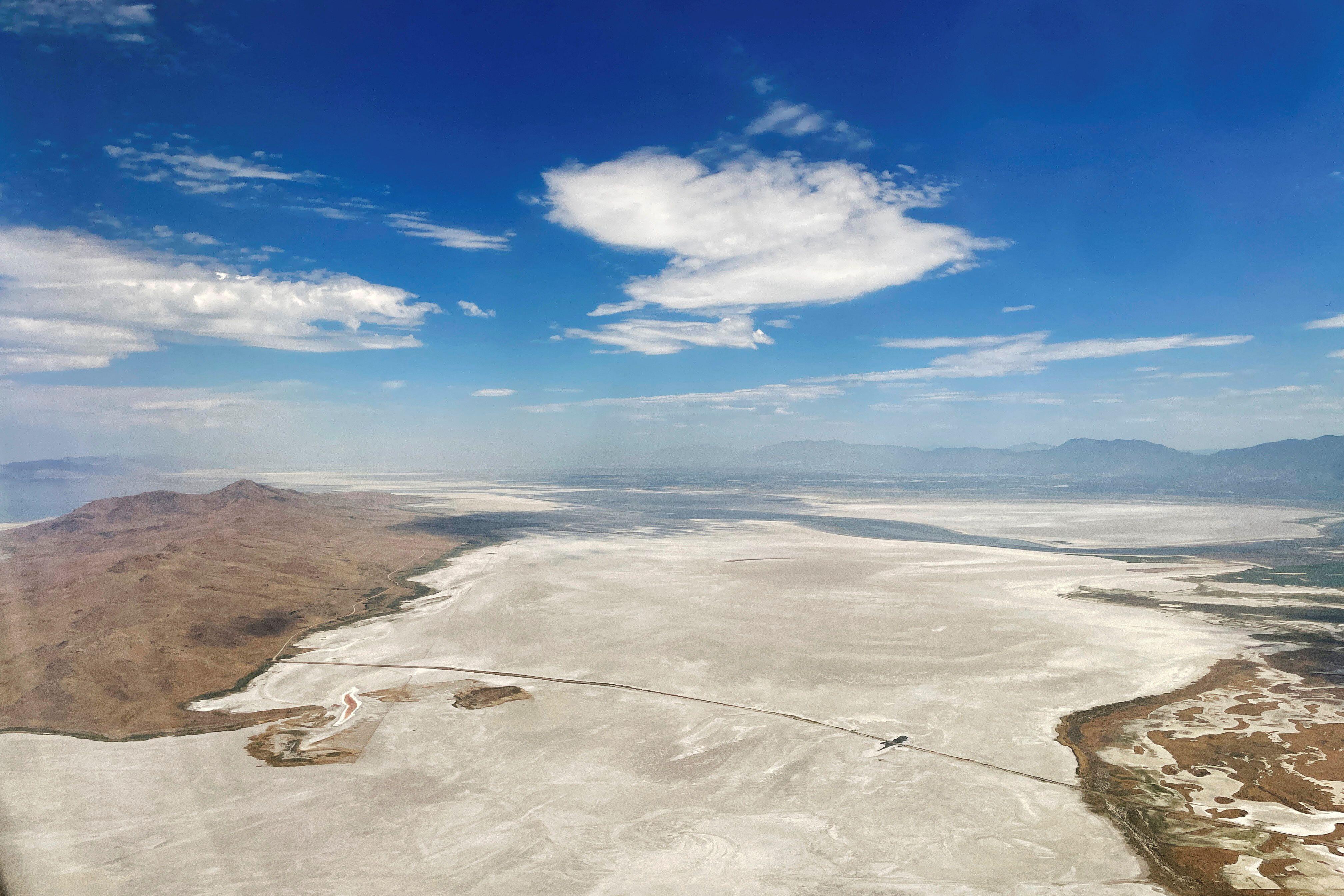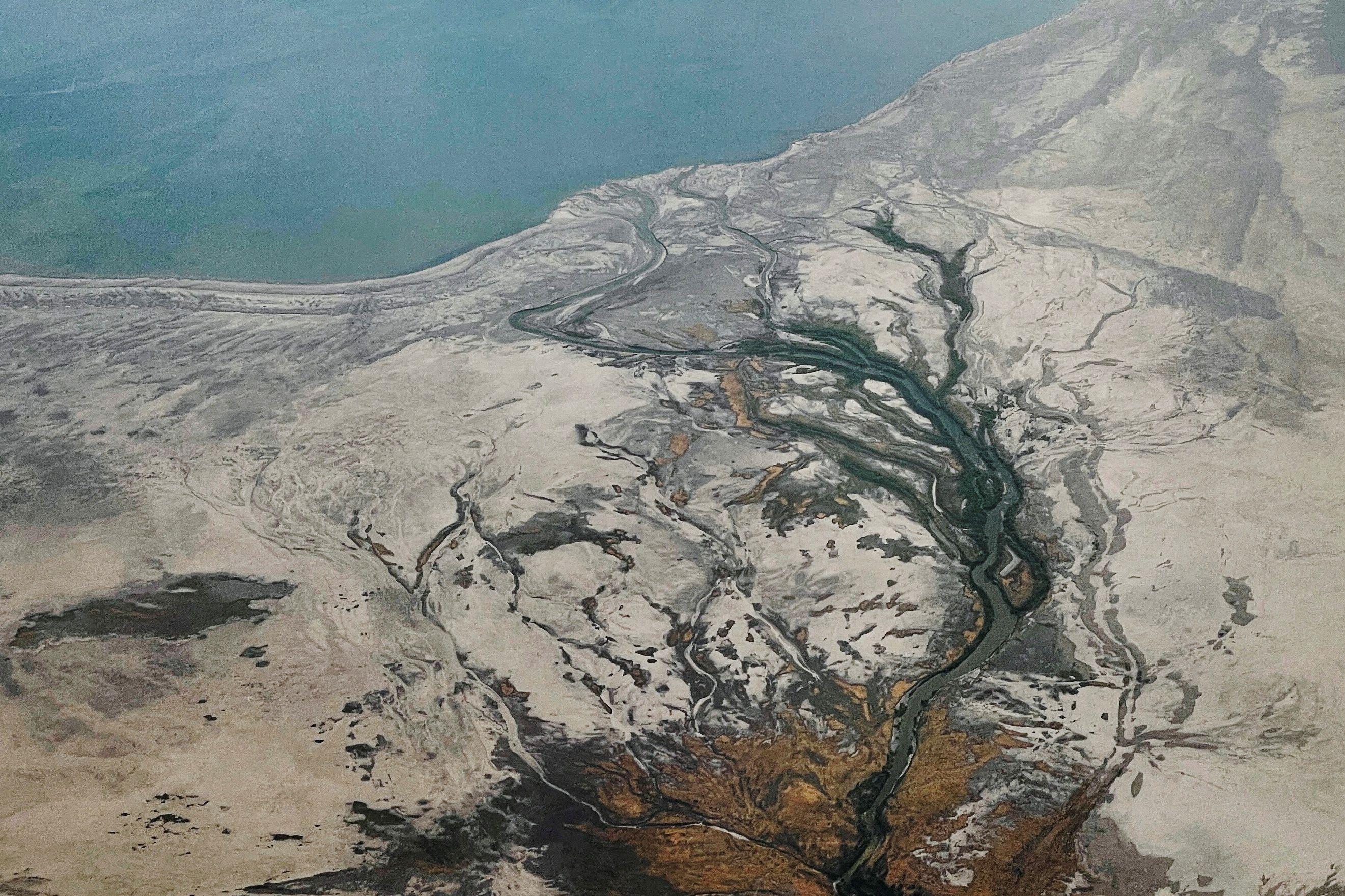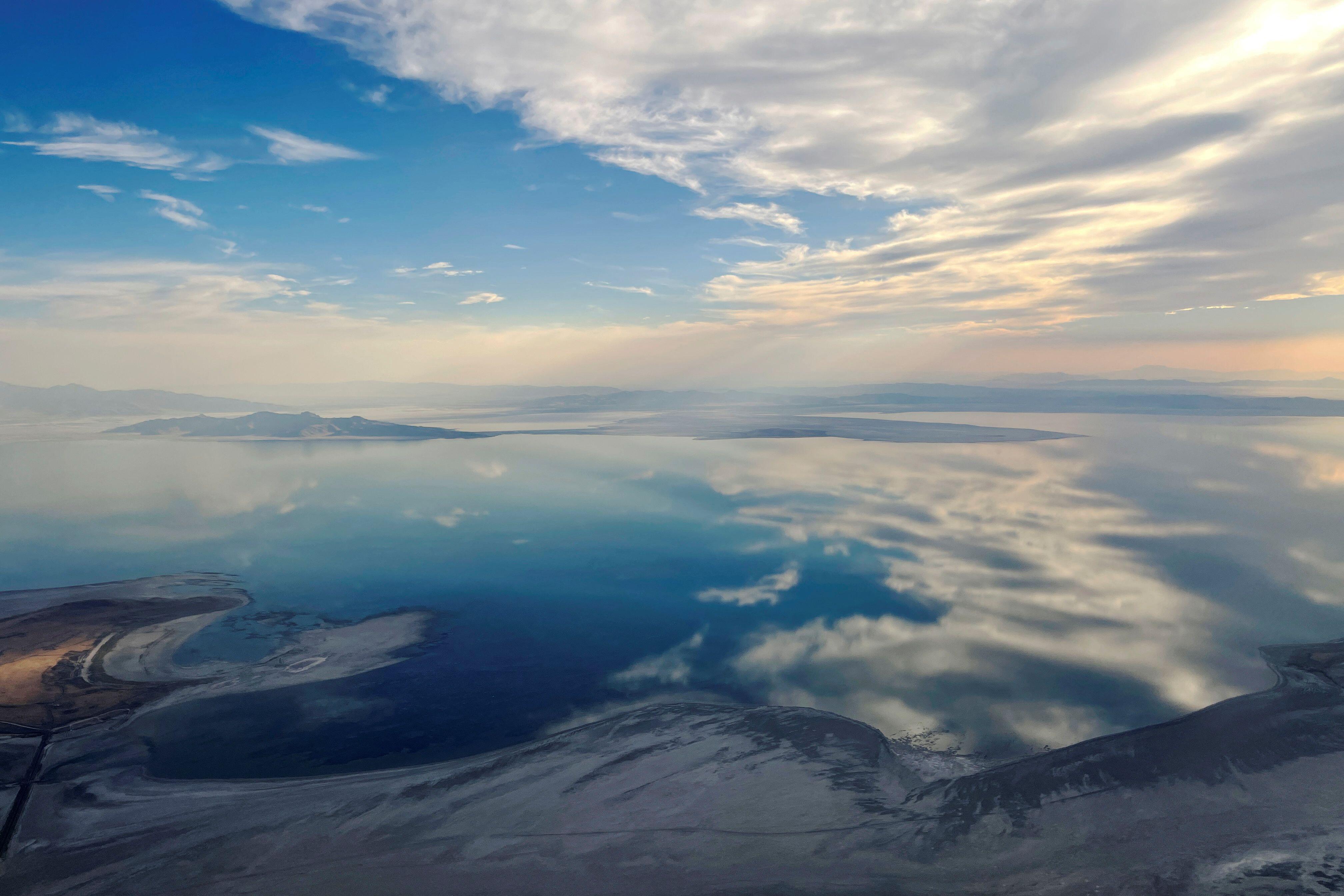Utah's Great Salt Lake is on the verge of collapse, and could expose millions to arsenic laced dust
Scientists say excessive water use is to blame, with 74% of diverted lakewater being used for unsustainable agricultural practices

Get the world’s most fascinating discoveries delivered straight to your inbox.
You are now subscribed
Your newsletter sign-up was successful
Want to add more newsletters?
Join the club
Get full access to premium articles, exclusive features and a growing list of member rewards.
Utah's Great Salt Lake, the largest saltwater lake in the Western Hemisphere, could be set to disappear within the next five years, exposing millions of people to the toxic dust trapped in the drying lake bed, according to scientists.
The urgent warning, issued in a Jan. 4 report by a team of 32 ecologists and conservationists, says that the lake has lost 73% of its water and 60% of its surface area since 1850 and is facing "unprecedented danger." Without emergency measures to add an additional 326 billion gallons (1,234 billion liters) of water to the lake per year, or enough water to fill nearly 500,000 Olympic-size swimming pools, it could pass the point of no return by the end of 2024.
The Great Salt Lake provides a habitat for around 10 million migratory birds and brings Utah roughly $2.5 billion a year in economic activity, but, after drying at record rates since 2020, is currently sitting at 19 feet (5.8 meters) below its natural average levels, the report found. Scientists and conservationists pin the blame squarely on excessive water use by the region's alfalfa and hay farms, which take 74% of the many trillions of gallons of the total diverted lakewater to irrigate their vast operations, according to the report. If the lake is to be saved, overall water usage must be rapidly cut by 30 to 50%.
Related: Glaciers in Yellowstone and Yosemite on track to vanish within decades, UN report warns
"The first law of ecology is 'everything is connected.' The collapse or recovery of the Great Salt Lake will have regional and even hemispheric impacts. Losing it would be a global tragedy," report lead author Benjamin Abbott, an assistant professor of plant and wildlife sciences at Brigham Young University, told Live Science. "We've got to rapidly decrease our water use or suffer the consequences. You can't negotiate with nature."

Besides removing water needed for farms, houses, reservoirs and the extraction of critical minerals from brine, such as lithium and magnesium, the rapid drying of the lake would also pose severe hazards to both the environment and human health. The lake bed contains toxic dust mixed with dangerous metals and metalloids such as antimony, copper, zirconium and arsenic that could be kicked up and carried by gusts of wind to damage crops; degrade soil; melt snow; and, if inhaled, increase the risks for illnesses such as asthma, bronchitis, heart disease and cancer. Dust from the Great Salt Lake has already been recorded in southern Utah and Wyoming, according to the report.
The lake's dwindling water is also nudging its salinity above safe levels for the algae and the brine shrimp that sustain its enormous food web, pushing the region's ecosystem to the brink of total collapse.
Get the world’s most fascinating discoveries delivered straight to your inbox.
But the scientists say that not all hope is lost. The Great Salt Lake is fed by the Weber, Jordan and Bear rivers, which in turn get their water from snowfall on the Wasatch Mountains to the east and north of Salt Lake City. Above average snowfall on the mountains this winter means that a substantial amount of water could be used to replenish the lake. For this to happen, the report writers say, politicians will need to declare emergency measures to prevent water being diverted for other purposes.
"We need to pull the emergency levers to get the water from our above-average snowpack to the lake," Abbott said. "There has been really encouraging progress already, with substantial bills passed last year that will encourage conservation in the long term. We need to add an emergency rescue to the mix."

Abbott says that the lake's plight is far from unique: More than half of the world's saline lake areas have already been lost as a consequence of unsuitable irrigation practices in the past 100 years, and climate change (which increases the likelihood of unpredictable fluctuations to water levels) is making the problem worse.
"Climate change is acting as a threat multiplier that reduces water available for human use, effectively decreasing our water budget," Abbott said. "Not only should we expect more lake collapses, we are already seeing them."
Candice Hasenyager, the director of the Utah Division of Water Resources, said that the lake’s drying was an "all-hands-on-deck-emergency" and that government officials are partnering with water users, non-profits, academic institutions, and state, local and federal agencies to address the problem. 2022 saw more than $500 million dedicated to state-wide water management and conservation programs, with a further $560 million proposed in the upcoming 2023 governor's budget.
"Protecting and preserving the Great Salt Lake is a top priority for the state," Hasenyager told Live Science via email. "The lake is vital to the environment, ecology and economy, not just in Utah but also to the western United States."

Ben Turner is a U.K. based writer and editor at Live Science. He covers physics and astronomy, tech and climate change. He graduated from University College London with a degree in particle physics before training as a journalist. When he's not writing, Ben enjoys reading literature, playing the guitar and embarrassing himself with chess.
 Live Science Plus
Live Science Plus










